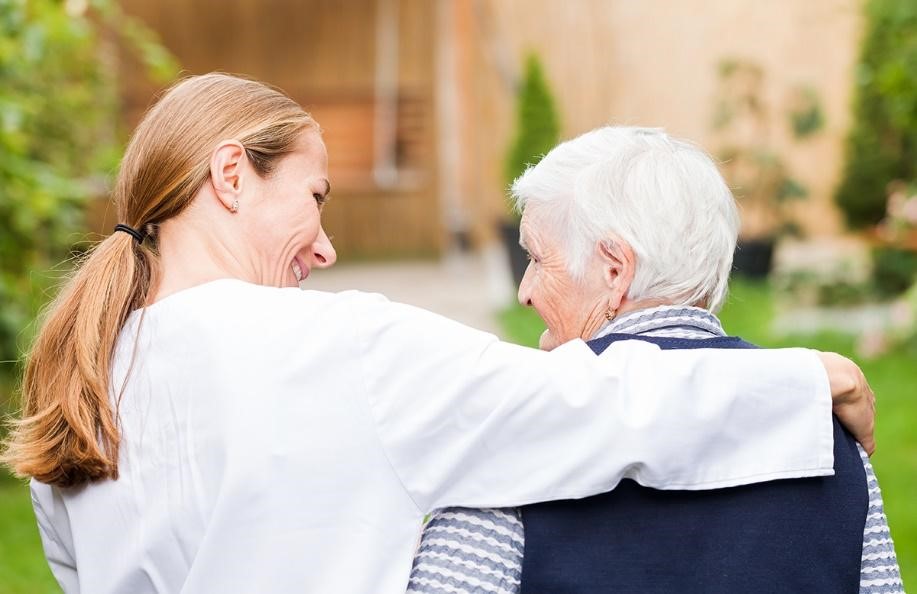
Caring for a Loved One After a Heart Attack
Once the danger is past, one of the most common questions asked by people who have suffered heart attacks is: When can I return to my normal lifestyle? The answer isn’t as straightforward as you might think. After being discharged from the hospital, a heart attack patient usually still has a significant amount of recovery time ahead of them. They will need to take things slow for a while, and they will need to consider whether they need to adjust their lifestyle to reduce the risk of future heart problems. As you plan for your hospital discharge, talk through the following issues with your doctor and family members:
Post-Hospital Care
Most people need several months or longer to return to full strength following a heart attack. During this time, you may need to reduce your activities, get help with strenuous tasks, or ask a caregiver to assist with personal care and other needs around the house. Talk through your plans for post-hospital care with your family and medical providers so you can be sure you have enough help.
Recognizing Symptoms of Heart Problems
After a heart attack, you are at higher risk for heart problems in the future. In addition to monitoring for chest pain and irregular heartbeat, learn to recognize lesser-known symptoms such as shortness of breath, pale or sweaty skin, nausea and vomiting, sudden fatigue, and pain or swelling in the legs.
Future Risk
Ask your doctor about your risk of having another heart attack and what you can do to lower that risk. You may also want to ask for help with things like managing medications, understanding any potential interactions with other medicine you take, or resources to help you stop smoking or start an exercise program.
What Should Your Daily Routine Look Like After a Heart Attack?

Eat a heart-healthy diet.
Talk to your doctor about how to design a heart-healthy diet that supports blood flow and reduces the risk of plaque build-up in your arteries. Most doctors recommend following a diet that is low in saturated fat, salt, and cholesterol, and eating plenty of lean protein, fruits, and vegetables.
Start a regular exercise program.
Aerobic exercise like walking, biking, swimming, or jogging strengthens your heart and helps it pump more oxygen-rich blood throughout your body. If you are overweight, exercising can also help you reach and maintain a healthy weight, which lowers your risk of heart disease and diabetes. Doctors recommend aiming for thirty minutes of exercise, 4 to 6 days per week. However, if you haven’t exercised in a while, you may not be able to start out at that level. Talk to your doctor about designing an exercise program that helps you build strength and endurance gradually.
Stop smoking.
Tobacco use is associated with several heart attack risk factors, including blood clots and high blood pressure. It can also damage the walls of your blood vessels and inhibit the flow of blood to your heart and vital organs.
Learn to manage high blood pressure, cholesterol, and diabetes.
If you have any or all of these conditions, talk to your doctor about what you can do to manage them with lifestyle changes or medication. For example, research shows that losing just 10% of your bodyweight can reduce cardiovascular risk factors such as high blood pressure, triglycerides, blood sugar, and LDL (“bad”) cholesterol.
Understand how to deal with depression and anxiety.
It is not uncommon to experience fear, depression, and anxiety for many months after a heart attack. If you feel overwhelmed or depressed, reach out to a mental health professional for help with working through these negative emotions. It is also important to have a strong support group of family members and friends who can offer sympathy and encouragement.
If you are concerned about caring for yourself or your loved one after a heart attack, you may benefit from working with a professional caregiver during the recovery. Caregivers can help you with meal preparation, light housekeeping, personal care, medication reminders, and other tasks that allow you to conserve your energy and focus on getting well.
Take our free Home Care Quiz to determine whether you or your loved one could benefit from the services of a professional caregiver.
{{cta(‘4a494617-2fe8-46c8-8fad-d06d51f37000’)}}






